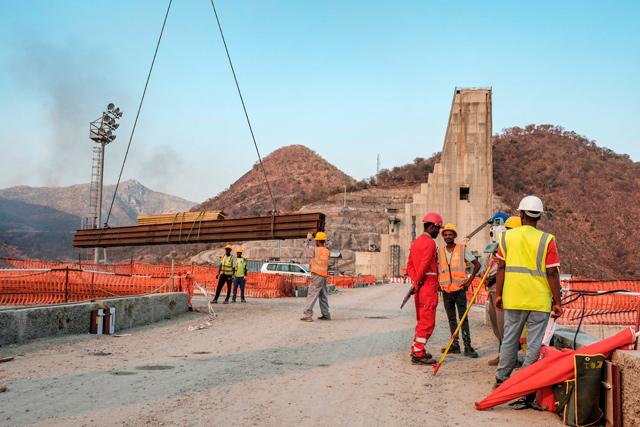- International News
- Mon-2020-06-22 | 04:06 pm

Tensions are running high between the three countries after recent talks failed to produce a deal on the filling and operation of the Grand Ethiopian Renaissance Dam.
"We do not want escalation. Negotiations are the only solution," Sudan's irrigation and water resources minister, Yasser Abbas, told reporters on Sunday.
"Signing an agreement is a prerequisite for us before filling the dam. Sudan has the right to demand it," he said.
Ethiopia has declared plans to start filling the dam next month, regardless of whether a deal has been reached.
Egypt, which views the massive hydro-electric barrage as an existential threat, on Friday urged the United Nations Security Council to intervene in the dispute, citing Ethiopia's "non-positive stances".
On Saturday, Egyptian President Abdel Fattah Al Sisi said in a televised address that his country had remained committed to a political solution.
"When we resorted to the Security Council... it stemmed from our keenness to take the diplomatic and political path until the end," he said.
Cairo fears the dam could severely reduce its water supply from the Nile, which provides nearly 97 per cent of Egypt's freshwater needs.
Addis Ababa says the dam is indispensable for its development and insists Egypt's water share will not be affected.
The Nile is a lifeline supplying both water and electricity to the 10 countries it traverses.
Egypt says the dam threatens the Nile's flow, most of which originates in the Blue Nile, with damaging implications for its food supply and economy.













